Equipping the Frontlines: ADB Training Enhances Timorese Police Investigations of Violence against Women and Girls
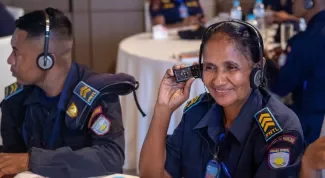
From April 28 to May 9, ADB and the Department for the Support of Vulnerable Persons (DSVP) of the Timor-Leste National Police (PNTL) held a series of training sessions for DSVP police officers on the use of digital audio recording devices to gather evidence in cases involving violence against women and girls (VAWG).
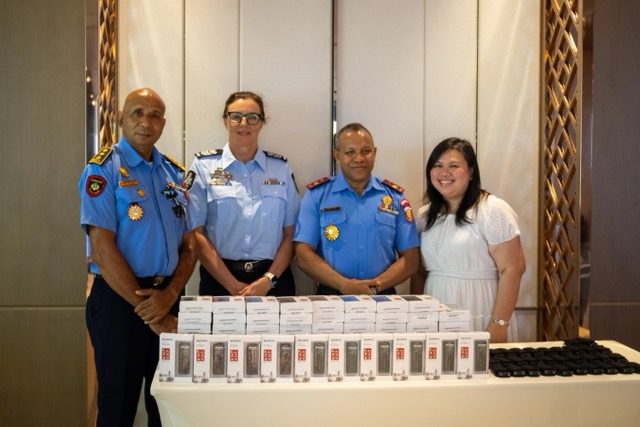
The training series kicked off with an inaugural ceremony on April 28. High officials of the PNTL attended in force. Among them were Second General Commander João Belo dos Reis, Superintendent, Director of Criminal Investigation Service; Chief Inspector Ricardo da Costa, National Commander of the DSVP; and Assistant Superintendent Maria Fatima Martins, Head of the Gender Equality and Inclusion Cabinet.
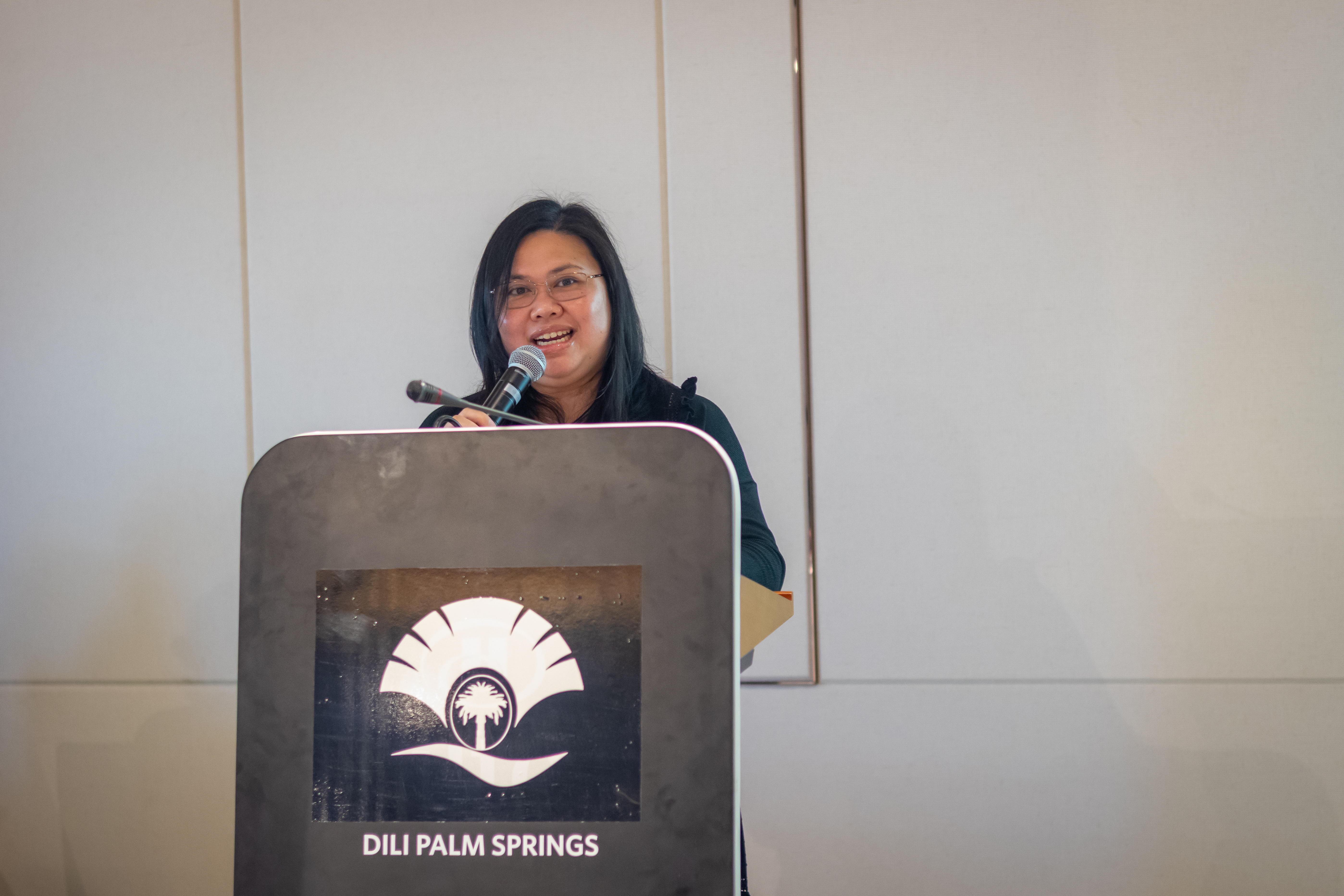
Maria Cecilia T. Sicangco, ADB Counsel and Co-Team Leader of the Promotion of Gender–Responsive Judicial Systems Technical Assistance, explained the rationale of this training series in her opening remarks: “It started with a request from the DSVP to ADB for assistance in procuring 88 digital audio recorders for gender-based violence investigations. We were glad to facilitate the acquisition of these recorders, recognizing them as modest inputs with considerable impact. However, we strongly believed that successful implementation required more than just supplying equipment. It was vital to build capacity—ensuring officers were trained in both operating the recorders and understanding the legal framework around their use.”
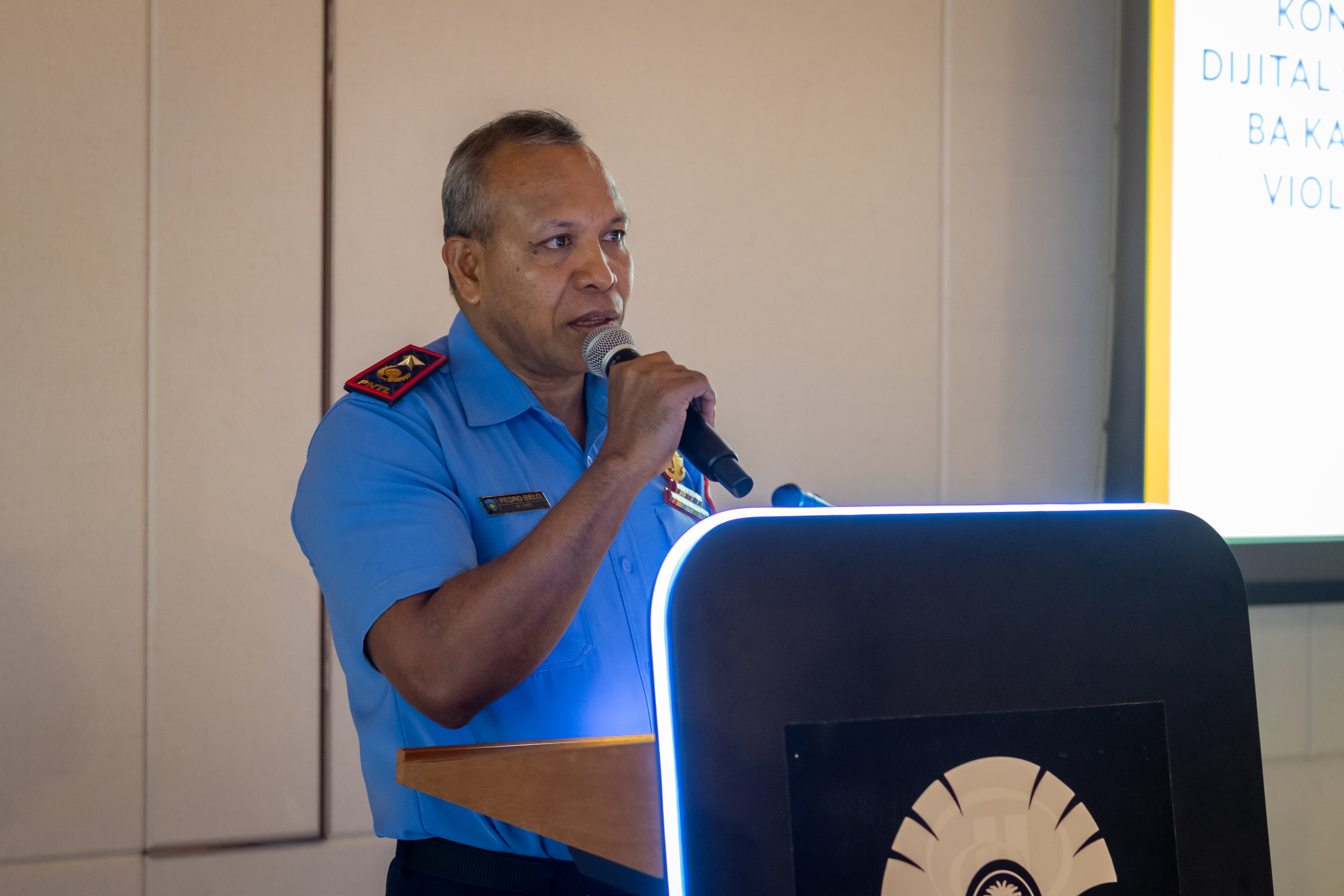
Superintendent dos Reis further impressed upon the attendees the importance of the training, recalling the prevalence of domestic violence in the country and DSVP’s pivotal role in responding to it: “Domestic violence continues to be the second most common crime in Timor-Leste...this type of violence can take many forms, including sexual assault. That is why this training is so important. You will learn how to perform your duties better and make sure that such crimes are dealt with by the courts. We are grateful therefore to ADB and all the agencies that have been building our capacity so that the case files are duly transmitted to the courts, and suspects and perpetrators of domestic violence against women and children do not walk free.”
Recognizing the specialized nature of the topic, ADB deployed a team of experienced consultants to design and lead the eight modules that comprised each two-day training session.
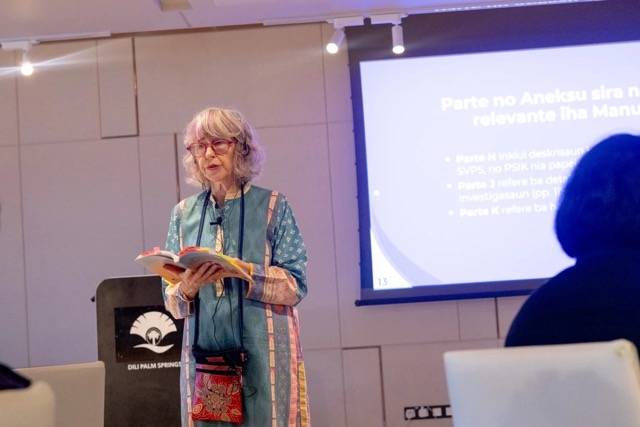
Robyn Layton—ADB specialist on judicial education and a former Supreme Court Justice of South Australia—covered modules on the legal aspects of VAWG cases, notably on the admissibility of audio recordings as evidence, ensuring proper chain of custody, and the responsibilities of police officers under the law in relation to the recordings and associated police reports. She also introduced the handbook developed by ADB and the Office of the Prosecutor General as a resource for DSVP.
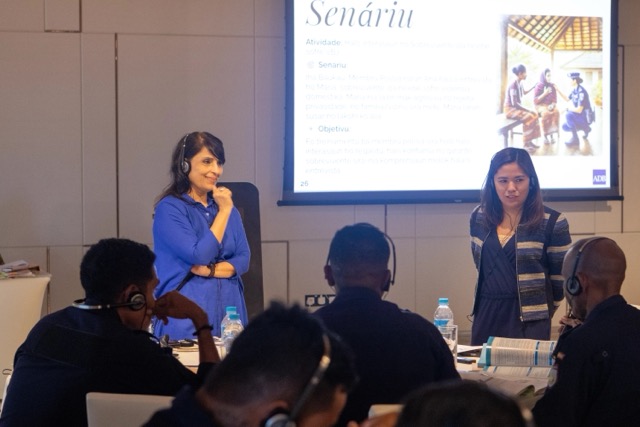
Samar Minallah Khan and Joycelyn Lucena—specialists in communications and behavior change, and in multimedia and communications technology—facilitated modules on the use of the ADB-donated recording devices, and on questioning techniques that limit emotional trauma of women and girls, and that respect socio-cultural norms. All three experts oversaw the final module, a simulation exercise that tested participants’ practical grasp of the training.
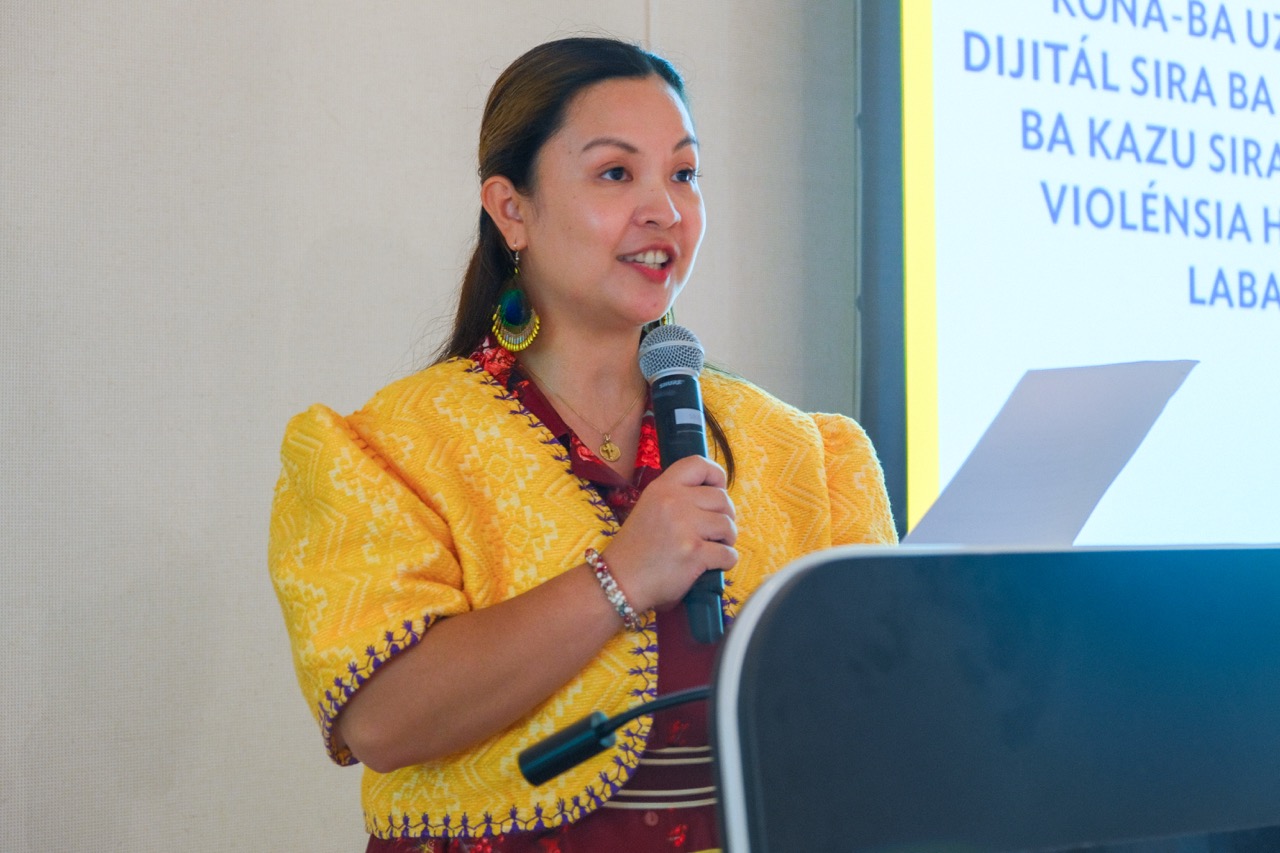
Over the course of two weeks, the ADB team conducted four training sessions, reaching a total of 119 DSVP officers from all 14 municipalities of Timor-Leste.
Gee Ann Carol D. Burac, ADB Associate Legal Operations Administrator, closed the training sessions by emphasizing that an interview conducted with patience and respect is the first step toward justice for a VAWG survivor: “In the delicate process of obtaining a statement, the digital recorder serves as your silent, impartial witness. It ensures the source's voice is accurately captured, preventing its loss to time or interpretation.”
This support to DSVP was part of the ADB’s sector-wide approach to strengthening the Timorese justice system, under ADB’s Promotion of Gender–Responsive Judicial Systems Technical Assistance, implemented by the Office of the General Counsel’s Law and Policy Reform (LPR) Program. Through this approach, ADB has already trained judges in 2022, prosecutors in 2023, justice officers in 2024, and the DSVP officers in 2025. ADB is now set to complete its sectoral capacity-building with its training for public defenders in August 2025.

